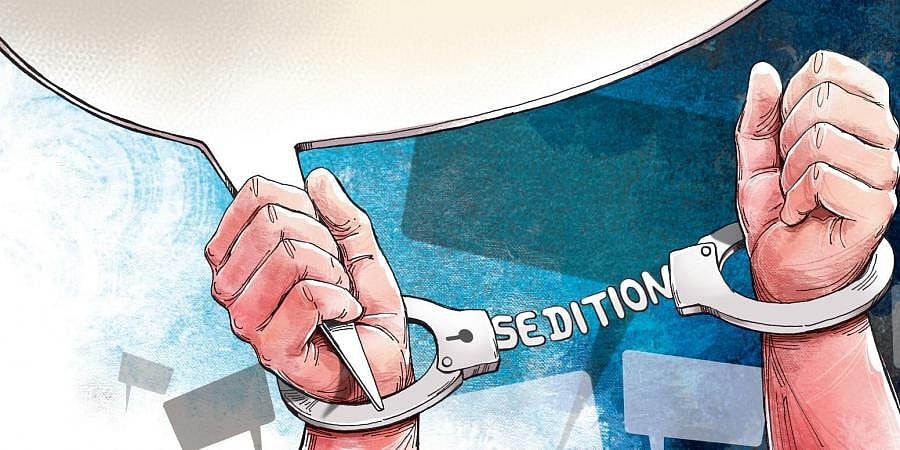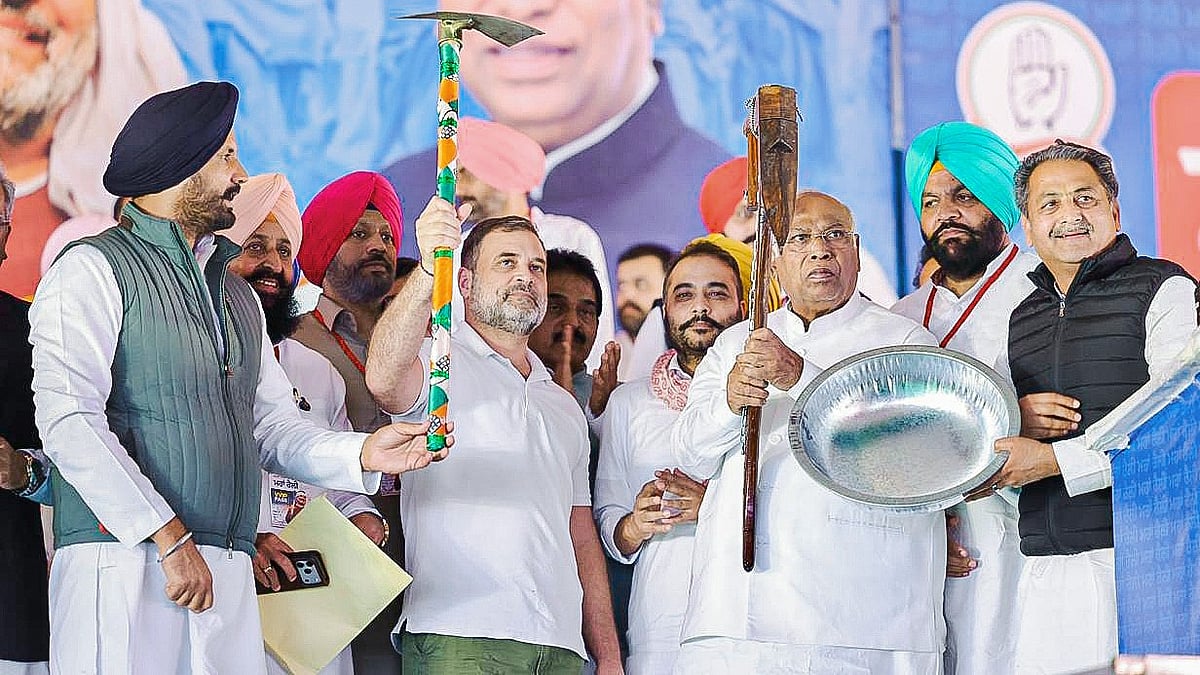The Supreme Court on Wednesday stayed all proceedings in sedition cases and directed the Centre and states to not register any fresh FIR invoking sedition charges until the government re-examines the colonial era penal law.
A bench headed by Chief Justice N V Ramana said all pending cases, appeals and proceedings with respect to charges framed for sedition should be kept in abeyance. Reliefs granted to the accused by courts would continue, it said and fixed the third week of July for hearing pleas challenging the validity of the provision; by then, the Centre would have the time to undertake the exercise to re-examine the provision.
Earlier, during the hearing, the Centre suggested that a superintendent of police ranked officer could be made responsible for monitoring the registration of FIRs for the offence of sedition.
Solicitor General Tushar Mehta, appearing for the Centre, told the bench, which also comprised Justices Surya kant and Hima Kohli, that the registration of FIRs for the offence of sedition cannot be prevented as the provision dealt with a cognisable offence and was upheld by a Constitution bench in 1962.
With regard to pending sedition cases, the Centre suggested that hearing on bail pleas in such matters may be expedited as the government did not know the gravity of offence in each case and they may have terror or money laundering angles.
"Ultimately, pending cases are before judicial forum and we need to trust courts," the law officer told the bench.
On Tuesday, the bench had asked the Centre make its stand clear within 24 hours on keeping the pending sedition cases in abeyance to protect the interests of citizens already booked and not registering fresh cases till the government's re-examination of the colonial-era penal law is over.
As the issue over sedition has intensified and come under fire in Supreme Court, here's you need to know about the law:
What is sedition law?
The penal law on sedition was drafted by British historian-politician Thomas Babington Macaulay in 1837. In the provisions of the law, sedition was defined as an act by “whoever, by words, either spoken or written, or by signs, or by visible representation, or otherwise, brings or attempts to bring into hatred or contempt, or excites or attempts to excite disaffection towards, the Government established by law in India, shall be punished with imprisonment for life, to which a fine may be added; or, with imprisonment which may extend to three years, to which a fine may be added; or, with fine.”
In the 19th and 20th centuries, the colonial British government primarily used the sedition charge, which was included in Section 124 A of the Indian penal code in 1870, to suppress the writings and speeches of Indian nationalists and freedom fighters to crush dissent.
As per section 124A, sedition is a non-bailable offence, punishable with imprisonment from three years up to life, along with a fine. The person charged under this law is also barred from a government job and their passport is seized by the government. Incidentally, the sedition charge was abolished by the United Kingdom in 2010.
What is the Supreme Court’s stance on it?
In July 2021, Chief Justice of India (CJI) N.V. Ramana had observed, “Sedition is a colonial law. It suppresses freedoms. It was used against Mahatma Gandhi, Tilak... Is this law necessary after 75 years of Independence?” He said this addressing Attorney General K.K. Venugopal and Solicitor General Tushar Mehta, appearing for the Central government.
He added, “If you look at the history of use of this Section 124A of IPC, you will find that the conviction rate is very low. There is misuse of power by executive agencies.”
However, in the 1962 Kedar Nath case the Supreme Court upheld the constitutionality of section 124A of IPC.
The 1962 order stated, “Continued existence of the Government established by law is an essential condition of the stability of the State. That is why ‘sedition’, comes under Chapter VI relating to offences against the State. Hence any acts within the meaning of Section 124-A which have the effect of subverting the Government by bringing that Government into contempt or hatred, or creating disaffection against it, would be within the penal statute.”
Some recent cases of the sedition charge being invoked:
Against environmental activist Disha Ravi, for sharing a ‘toolkit’ for a global online campaign supporting the farmers’ protest
Activists Sudha Bharadwaj, Vernon Gonsalves, Varavara Rao, Hany Babu, Anand Teltumbde, Shoma Sen, Gautam Navlakha, Surendra Gadling, late Father Stan Swamy, Arun Ferreira, Rona Wilson, Mahesh Raut and Sudhir Dhawale, for speeches at an Elgaar Parishad meeting ahead of the violence in Bhima Koregaon on the occasion of the bicentennial anniversary of the 1818 battle.
Against activists Umar Khalid, Sharjeel Imam, Devangana Kalita, Natasha Narwal, Asif Iqbal Tanha, Gulfisha Khatoon, Ishrat Jahan, Safoora Zargar and Meeran Haider, for alleged inflammatory remarks at anti-CAA meetings and ‘premeditated conspiracy’ to create riots in Delhi in February 2020.
(with agency inputs)





